Birthing A Champion
Written by Adeola Sheehy-Adekale & Photography by Ann Owen
In all the ways that Covid-19 has affected daily life for families, the impact that it has had on the birth journey has been profound and will have echoes for years to come.
As no two women are the same, no two births will be the same, but there are a few undeniable constants. One being the need for a safe birthing environment, and whether at home, in hospital, or the back of an ambulance, what makes a place safe are the people within it and the atmosphere they create.
Women delve deep into their warrior natures during labour and birth, and ideally, they are enabled and encouraged to retreat from the world around them. To do this they require a champion, a defender to act as the interface between them and the outside world.
This bubble isn’t created at the moment labour begins, it starts to form at the first point of connection between the partner and the baby, and grows with every passing month. But what if your partner is no longer able to come to scans to see the baby for the first time, and can’t hold your hand and exhale in relief as you’re told everything is alright?
What if they can’t hear the galloping of the tiny heart within you and feel that fierce rush of protection toward this tiny being?
What are the consequences of knowing that if you birth at a hospital you will need to say goodbye at the door and enter alone?
What are the consequences for the partners?
For first time dad Richard, it feels like an unseen area of the pandemic as ‘unless you are in forums listening or experiencing it yourself, you don’t know how it is. I wondered to myself am I the only one who is feeling as bad as I’m feeling right now?’
As the first UK lockdown began, Richard found himself isolated at work with minimal interaction and with a partner at home struggling with sickness and anxiety. Gratefully they had the support of Rebeka’s mother living with them but with no experience of pregnancy and no friends with young children, the enforced isolation left him alone with his worries without support or spaces to voice and discuss his feelings.
Having been warned he would be removed with force if he tried to attend, his sole aim was to lessen the stress for Rebeka so he sat outside every appointment, physically as close as he could be but still achingly far away.
‘When you’re sitting there, an hour feels like a day especially for that first appointment because you don’t know if everything is okay. It’s been really hard. I missed all the first scans and for me it still hurts because I can’t get that back.’
As someone who prided himself on being as present and as supportive as possible throughout their relationship, it felt to Richard that a fundamental part of his personality was being denied, as well as Rebeka’s support system being taken away just when she needed it most.
‘It’s like there’s this big wall in the middle and that’s very hard for me, to feel like there’s a person in the middle of our relationship. And between me and my child. It’s very difficult. The new line in my head became ‘if Covid permits me’ and that shouldn’t be the answer to every question someone asks me.’
Out of frustration they chose to pay for private scans and while having to pay to hear the sound of his first child’s heartbeat felt fundamentally wrong, this was an experience they wouldn’t allow to be taken away. As they still couldn’t have Rebekah’s mother present they bought a bunny with a recording of Baby R so she could share their joy the way it would have been any other year. But that leads to the question why was he allowed to be present only in a situation where money had crossed palms first?
‘You can’t get the first cry, the first sight of your child back. So many men have missed the births of their children, and we have to ask why? I feel like dad’s right have been hugely stripped back. I’m doing everything I can, but I can’t help her, I can’t support her.’
The rules and guidelines were changing rapidly, and for them it felt like every pathway they tried as they planned the birth had a block in place. ‘I got to the point that I said alright she can video call me, but I was told she couldn’t due to data protection laws.’ So Richard chose to turn his anger and frustration into positive action and attempted to create a new path and was part of creating an online petition to allow Dads to be there for their partners through the birth journey.
‘I shared on every forum, every news group and NHS post I could find. It reached 300,000 signatures and I believe it changed something, but it shouldn’t have had to have been a fight. I felt like I couldn’t talk to the government directly, so this was a way of being heard and getting something done. It felt obsessive at one point because I needed it to change by our December due date. I would come home from work, spend time together talking through the day and reconnecting, and then as soon as she was asleep I would open the computer and start working. I didn’t want to do anything to add to her stress or anxiety, but I needed do whatever it took to enable me to be with her and our child.’
Through working on the petition and deciding to be as open as he could and reach out to as many other Dads as possible, Richard began building connections that would never have been created otherwise.
‘By starting these conversations, we gave each other permission to open up, empower ourselves and create community. I’ve done my small bit, and it’s good to know that I’ve done something that’s helped.’
The trials of 2020 turned the ground into quicksand under their feet but through that Richard and Rebeka have created a solidity in their relationship, which has deepened their trust and returned the security that the situation stole away. They have felt empowered enough to plan for a home birth knowing that they want not only Richard but also Judith, Rebeka’s mother to be present alongside their midwife. Rebeka freely acknowledges how grateful and privileged she is to have such amazing support at home, and at time of writing is eagerly counting down the days to meeting their little boy.
You can imagine how you’ll react in a situation, you can plan for it but there’s no way of knowing and that can lead to a small area of doubt that left unchecked can take over. By becoming a champion, by empowering yourself through pregnancy you become introduced to a new aspect of yourself, an aspect that is strong and determined, that loves fiercely and does not turn away when needed.
We have spent decades as a society changing expectations of birth and bringing Dads and partners into the birth room, showing them that their role didn’t end with conception, that the strength of the relationship they have with their partner matters, how much they can support their partner matters, and will continue to matter for the rest of their parenthood journey.
Surely if we want healthy resilient parents, one of the greatest and most empowering ways to create that is to show both parties that their roles differ but are complimentary and vitally important. Yes, a woman can birth on her own, and when it is chosen it can be one of the most fiercely awe-inspiring moments to bear witness to. But to enable that moment to take place, a container must be created first. A bubble in which she knows she is respected, trusted, heard and understood. A bubble in which she knows she can hand over the interaction with the world to someone who will speak and fight for her. A bubble in which she knows she is protected and guarded as only a champion can.
By keeping partners from the birth room against their will, we are robbing them of a transformative experience. One in which they not only view their partner in all their messy, vulnerable, raw splendour but one in which they have the opportunity to grow into another aspect of themselves.
A champion is not someone who has won a race, a champion is someone who has deserved and accepted the role of guardian, protector and advocate. A true sovereign needing no power over, as they use all their power to support and serve.
A father who embodies this was Kieran, already a father to two before his new baby Hendrix was born during lockdown.
The pregnancy had been relaxed and easy going and although the news stories of the virus were increasing, Kieran and Cher kept it firmly in the periphery. But just a few weeks into lockdown and with only two weeks to go before the due date, their midwife was change and their plans were turned upside down. The situation was rapidly changing and there was a sense that no one really knew what the guidelines were or how they would change. One thing was very clear however, Kieran would not be allowed in the birth room until Cher had progressed to active labour, something that only their past experiences could reassure him about.
‘I’m so happy that we had the two births that we did before this so we both knew what to expect. If we’d had to have gone through this with our first child, I think I would have been a nervous wreck. I think I would have been screaming at that door. It’s only because I knew how she would be, she’s a warrior so I knew she’d be okay. I think it scares guys off actually going to the hospital at all, they’ll think what’s the point of going if I’m only going to sit outside for hours.’
And isn’t this the risk we run. First time births can take their time, you could be sat waiting minutes, hours or in some cases over a day. There have been numerous cases of partners leaving to get food only to receive the call saying your baby is coming, and they can’t get back in time and miss the birth altogether. What does that mean for the trust and ability to depend on partners which is so important for mothers. So often women feel overwhelmed, anxious and alone, are there changes we could make to the birth journey that would lessen those feelings?
Pacing and waiting, knowing that with fast births in their history that he could be called at any moment, Kieran had no choice but to stay as calm as possible, phone in hand. Waiting. When he finally got the call from Cher that he could come in, Kieran still had to wait for someone to come to the locked doors, and then to confirm that he was allow entry.
‘That took another 10 minutes and I’m standing there thinking anything could be happening. It was pretty stressful in that sense.’
Cher at this time was in a room alone also pacing, doing what she could to slow things down until he could arrive.
‘With my first I used hypno-birthing so I had headphones on and eyes closed and I relied on Kieran to be my interface with the outside world, with my second I was more present but still within my bubble. But with this Kieran wasn’t there.’
Trying to manage the continual questions from the staff meant when they left her alone there was relief, but instead of being able to go into the calm space she had retreated to twice before, this time Cher just couldn’t relax.
‘I kept looking at the bed thinking oh my god I’m going to have to get up on to the bed by myself, how am I going to get up there? I tried to call Kieran and I couldn’t get through as I had no signal, so I had to pull the cord for help.’
When help arrived Cher was told the midwife wasn’t yet aware that she had arrived and would be along soon. Time in labour loses all meaning, seconds stretch and minutes feel like hours. When this is magnified by confusion and isolation the only outcome will be the opposite of the safe, secure environment a woman requires to birth.
Once Kieran was in the room and by Cher’s side things progressed quickly, but as is so common Kieran felt treated like an irritation as he tried to express Cher’s wishes and explain that her high pain threshold and calm under pressure attitude meant she didn’t give off the signals they were looking for to show that Hendrix was close.
‘They dismiss you out of hand, almost telling you you’re nothing to do with this. We’ve always wanted it to be that we’re both fully involved with every aspect of our family, and that includes birth.’
Home as quickly as they could, to return to the calm and chilled environment that is the bedrock of their family, they were only a month into the first lockdown, and for Kieran and Cher, this was when the virus had the biggest impact.
‘When we came home with Hendrix there was a huge amount I couldn’t do, I couldn’t feed him or soothe him when that’s what he wanted, but I could take care of the other two. When I go to bed I’m going to sleep but when Cher goes to bed she’ll be up all night, so my way to support her was to try and take care of the others as much as possible.’
With the fourth trimesters they had experienced before, Kieran had no choice but to work and sadly that meant working away from home. While it meant everything to him to support his family financially and in every way possible when he was at home, he was very much aware of the distance that put between him and his children.
‘As Cher breast feeds they were completely dependent on her and that meant they really didn’t want to know me for the first few months. Because I had to work away quite a bit it felt as though I could have walked out that door and not come back and they wouldn’t have noticed, but with Hendrix the connection was completely different because I’ve been able to be at home. I was there for months and months so if I did go anywhere when I’d return he’d be fighting to get to me. So it does make a massive difference.’
Kieran is an incredibly devoted father and partner and while strides forward have been made to enable dads to be round more during those first weeks, should it really have taken a national lockdown to allow a family to live in a way that meets their chosen way of parenting? For some people the repercussions of Covid-19 have shaken the very core of their beliefs, their ways of living, and forever changed who they are as individuals. For Cher and Kieran, it gave them the opportunity to sink deeper into a lifestyle they would have chosen for themselves if they had had the opportunity. It hasn’t taken away from them, instead it has allowed more… more time, more hands to help, more love to be felt on a daily basis. A confirmation of who they already were.
‘I’m just so happy that Cher and I are on the same page about everything we do, we discuss everything and tackle things as a team. I am grateful that I’ve had this year, it’s given me the space to be the equal parent I want to be.’
Covid-19 has put many aspects of our lives under a microscope. I believe the effects it has had on birth have offered us the opportunity to think about how we treat families as a whole, how we treat partners, and how much space we allow each other to step into the roles life asks of us. People often say that anyone can create a child, but you have to become a parent. Perhaps now is the time to answer for ourselves, when that process begins and how it can be supported and enabled to thrive.
There is something life altering about watching someone fight for you. Partners need to see what women go through to birth, but women also need the opportunity to see someone loving them enough, believing in them enough to stand beside them in their corner. They need a moment that demonstrates to them;
Yes, he’s got this, I can let go of absolutely everything because he’s got this. When it counts he’s there, I’ve seen him carry the entire world and hold back the tide.
How often do we hear post birth of a mother feeling like she has to do it all, that she doesn’t feel enough trust in the people around them to be able to let it all go and know that someone will be there to pick up the slack? Perhaps the birth journey is a door way to that trust.
If we really want families and relationship dynamics to shift, then changing our perception of the roles essential to birth is a good place to start. We will continue to take two steps forward and one step back until we all stand together, and to rise we often need a hand to help us up.
There isn’t just one story in a birth, there are many more and until they are all heard and honoured we will not be able to experience all that the birth journey has to offer.
This article was first published by ‘A Parent Is Born’ a publication by The Good Men Project.
To be inspired and to read more of Adeola's incredible work head over to her website.
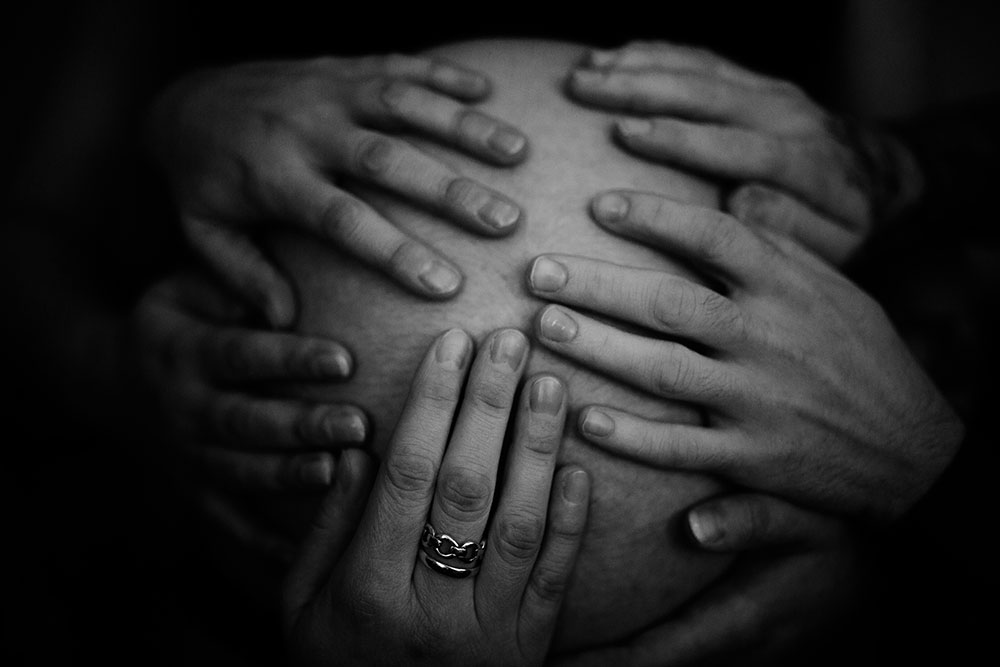
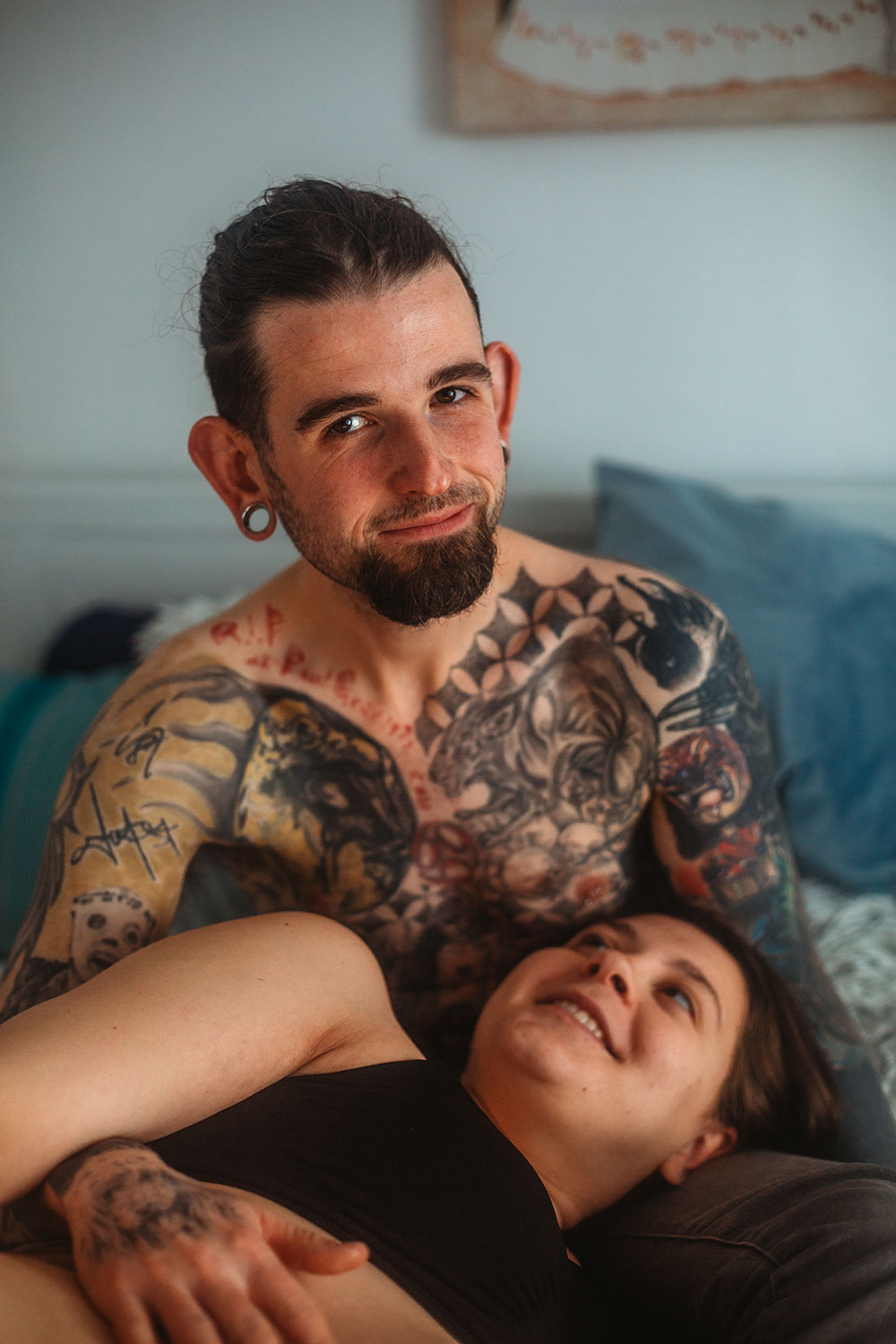
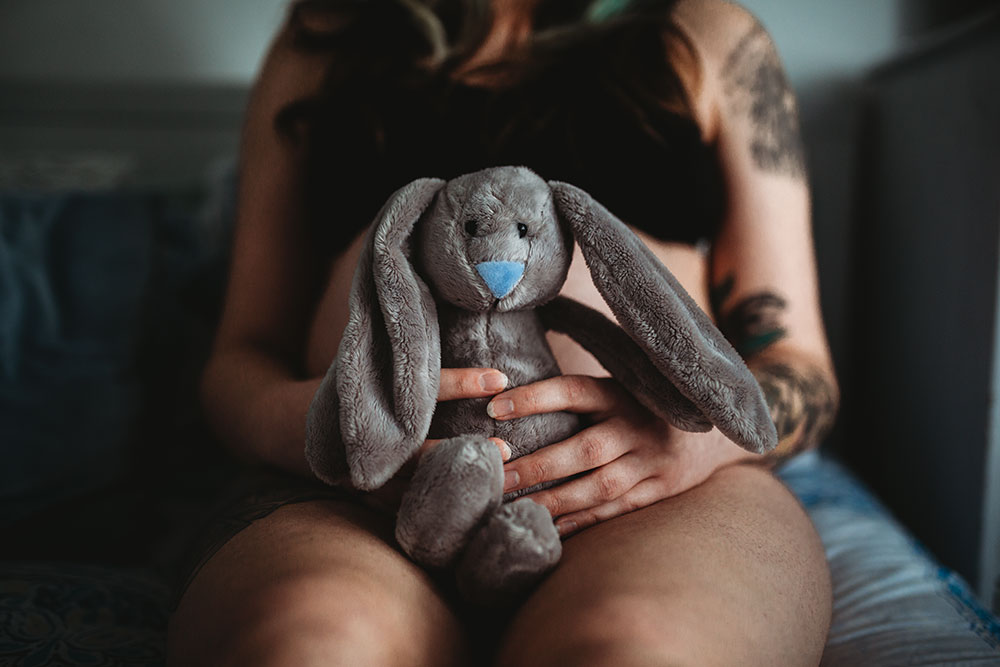

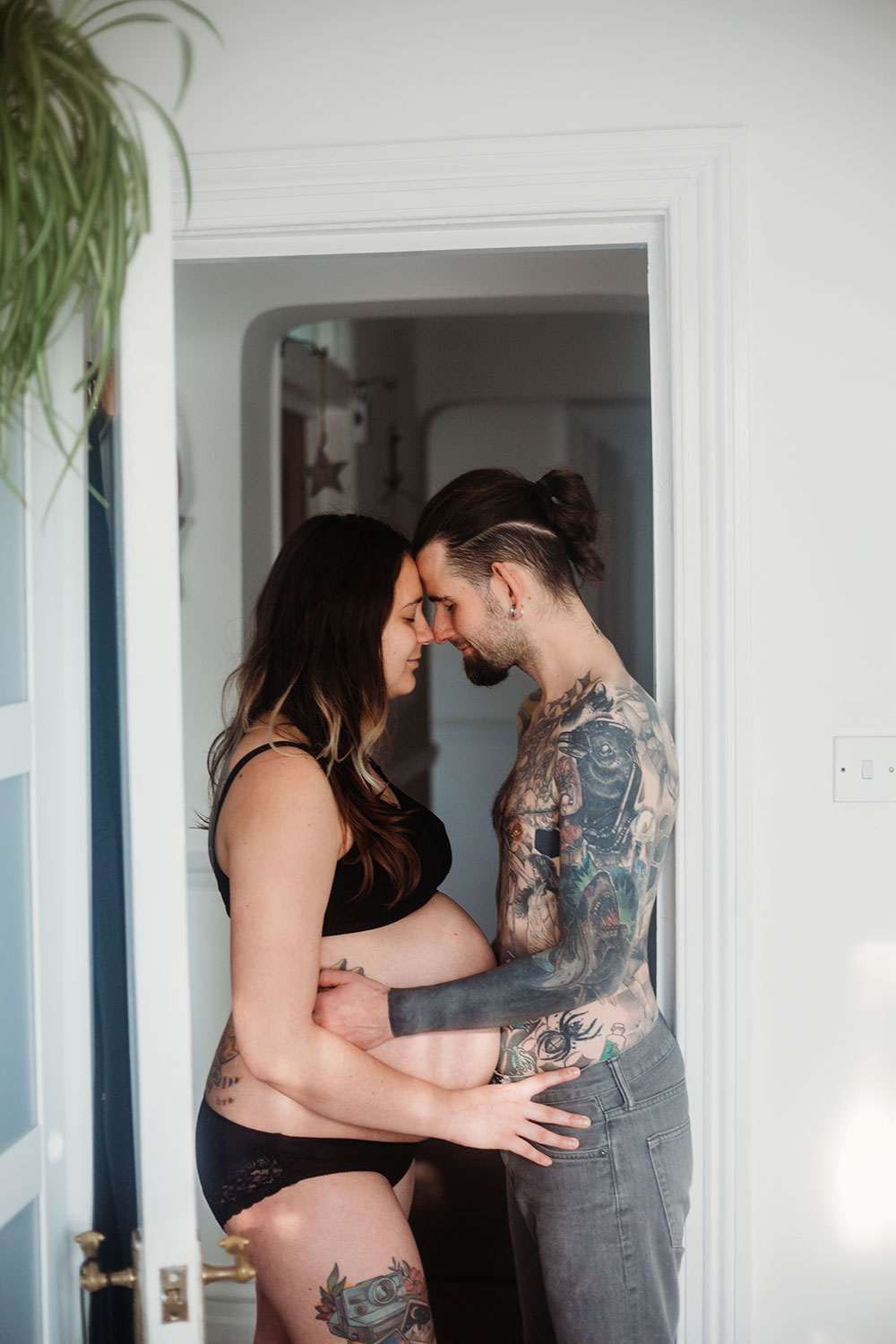
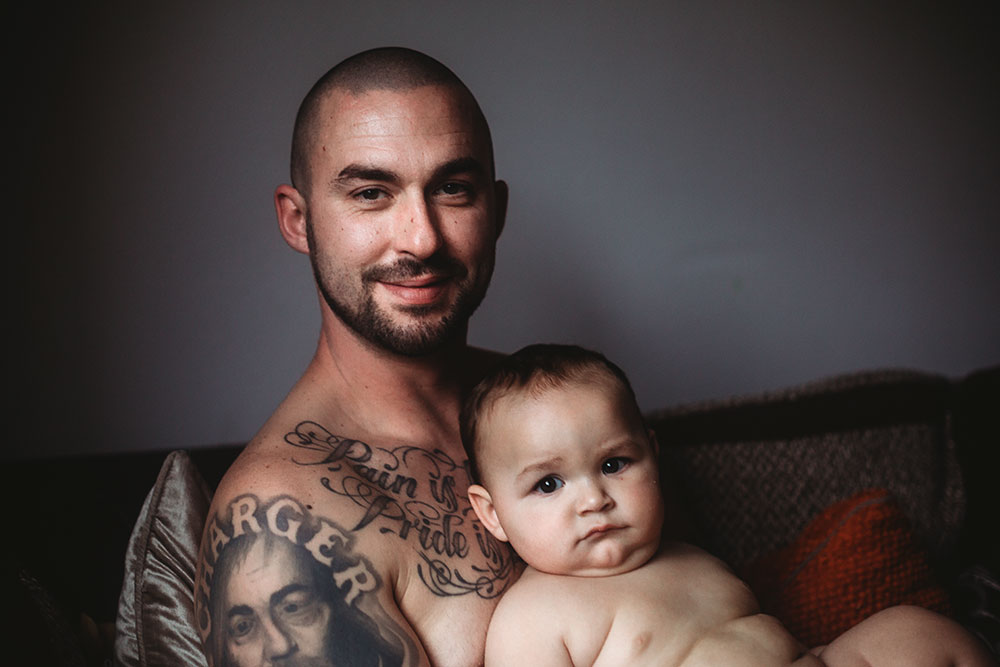

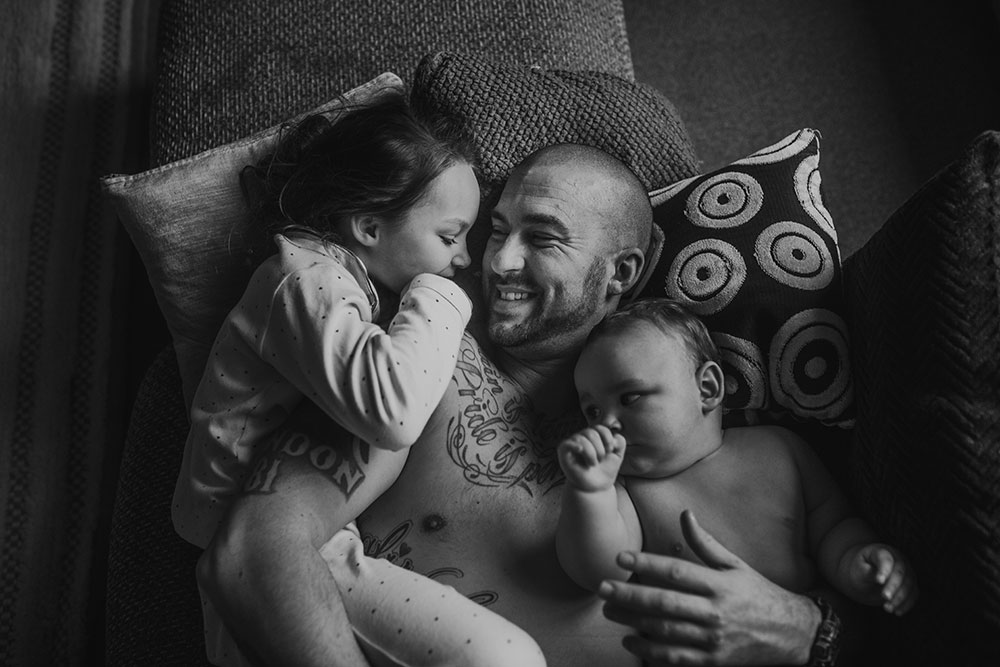
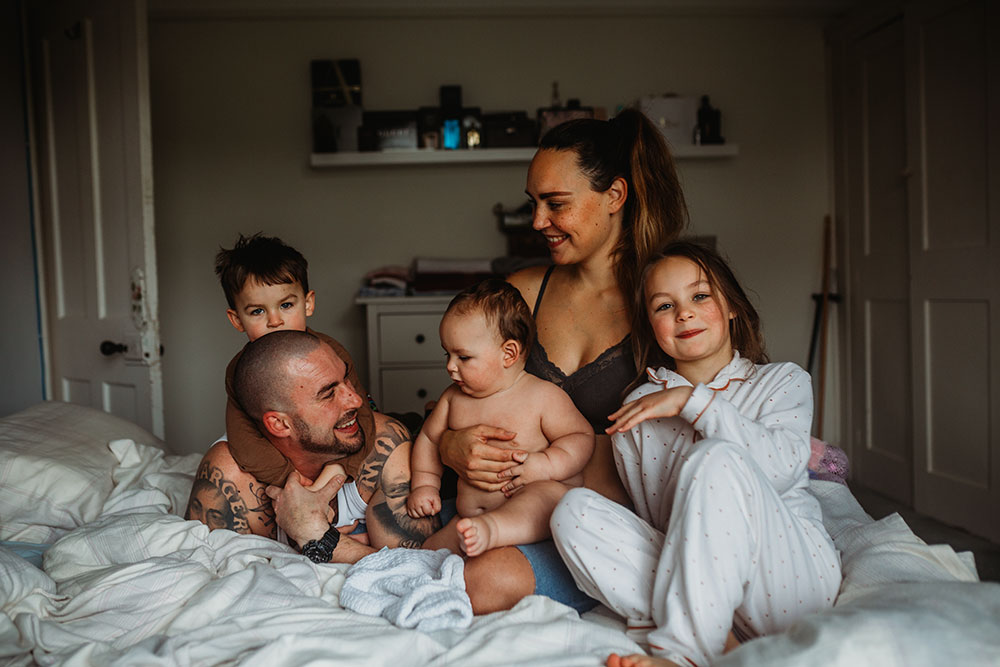
Leave a comment